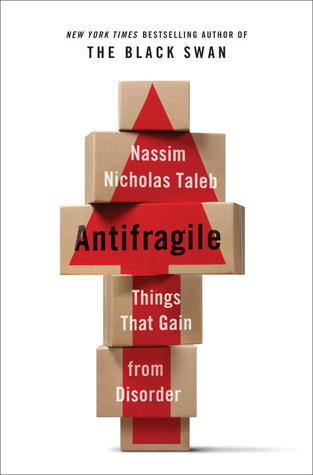
Antifragile: Things That Gain from Disorder
Book Description
Imagine a world where chaos has the power to create strength, where setbacks fuel growth, and where uncertainty becomes an ally. "Antifragile: Things That Gain from Disorder" unveils a revolutionary mindset that transforms our understanding of resilience. Instead of merely surviving the storms of life, this book reveals how to thrive amidst turbulence, harnessing volatility to emerge stronger than ever. Taleb explores the fragility lurking in systems, ideologies, and societies, urging a shift from vulnerability to adaptability. What if embracing disorder could unlock your true potential? Dive into the chaos and discover the exhilarating possibilities that lie ahead.
Quick Book Summary
"Antifragile: Things That Gain from Disorder" by Nassim Nicholas Taleb revolutionizes the way we perceive chaos, uncertainty, and adversity. Rather than simply aiming for resilience—the ability to withstand shocks—Taleb introduces the concept of antifragility, a property in which things benefit and grow stronger from volatility and disruptions. Through examples ranging from biological evolution to financial systems, he argues that most modern structures are fragile, overly engineered for stability, and thus doomed to fail when faced with unpredictability. Taleb invites readers to embrace risk, randomness, and disorder as essential constituents for growth, innovation, and progress. By applying antifragile principles across personal, professional, and societal domains, we can transform setbacks into opportunities and shift from a mindset of mere survival to one of thriving in a volatile world.
Summary of Key Ideas
Table of Contents
The Nature of Antifragility
Taleb begins by examining the nature of antifragility, distinguishing it sharply from fragility and resilience. A fragile system breaks from stress, while a resilient one withstands shocks but does not improve. Only antifragile systems benefit and grow from disorder. He uses a range of analogies—biological evolution, entrepreneurial ventures, and mythology—to explain that living things and robust organizations often owe their progress to trial, error, and the capacity to harness unforeseen events. This foundational concept sets the stage for understanding how embracing chaos can lead to greater strength and wisdom.
Embracing Uncertainty and Volatility
The book delves deeply into the power of uncertainty and volatility. Taleb argues that most of society’s progress, like natural selection or successful innovation, emerges from randomness, unpredictability, and small-scale failures. By seeking optionality—having many opportunities and flexibility—we can position ourselves to exploit positive outcomes from disorder. Overly controlled environments, such as bureaucracy or tightly regulated markets, actually breed fragility by stifling adaptability and learning, making them dangerously susceptible to rare, high-impact events (Black Swans).
The Pitfalls of Over-Optimization and Fragility
A critical theme is the peril of over-optimization and perfectionism. Systems that are engineered for maximum efficiency or predictability, whether in finance, health, or technology, become less able to cope with unknowns. Taleb criticizes the "turkey problem": comfort from a lack of visible danger does not ensure safety, as crises often come without warning. By chasing stability and overconfidence in forecasts, individuals and institutions build hidden risks that will eventually lead to catastrophic breakdown.
Via Negativa: Removing Harm Over Adding Solutions
Taleb introduces the principle of "via negativa"—the idea that removing harmful elements often proves more powerful than adding solutions. By subtracting toxins, weaknesses, and sources of error, systems become less exposure-prone to chaos. He stresses simplicity over complexity and advocates for stress-testing oneself and one’s environment through deliberate exposure to manageable risks, rather than shunning all discomfort.
Personal and Societal Strategies for Antifragility
The final sections focus on practical strategies for cultivating antifragility in both personal and societal contexts. Taleb encourages habits like small-scale trial and error, decentralization, and embracing humility in the face of unpredictability. He endorses living with skin in the game—bearing the consequences of one’s decisions—and urges communities and organizations to distribute power to reduce system-wide vulnerability. Ultimately, Taleb’s work challenges readers to rewire their outlook, seeing chaos not as an enemy but as the wellspring for strength, learning, and transformation.
Download This Summary
Get a free PDF of this summary instantly — no email required.





